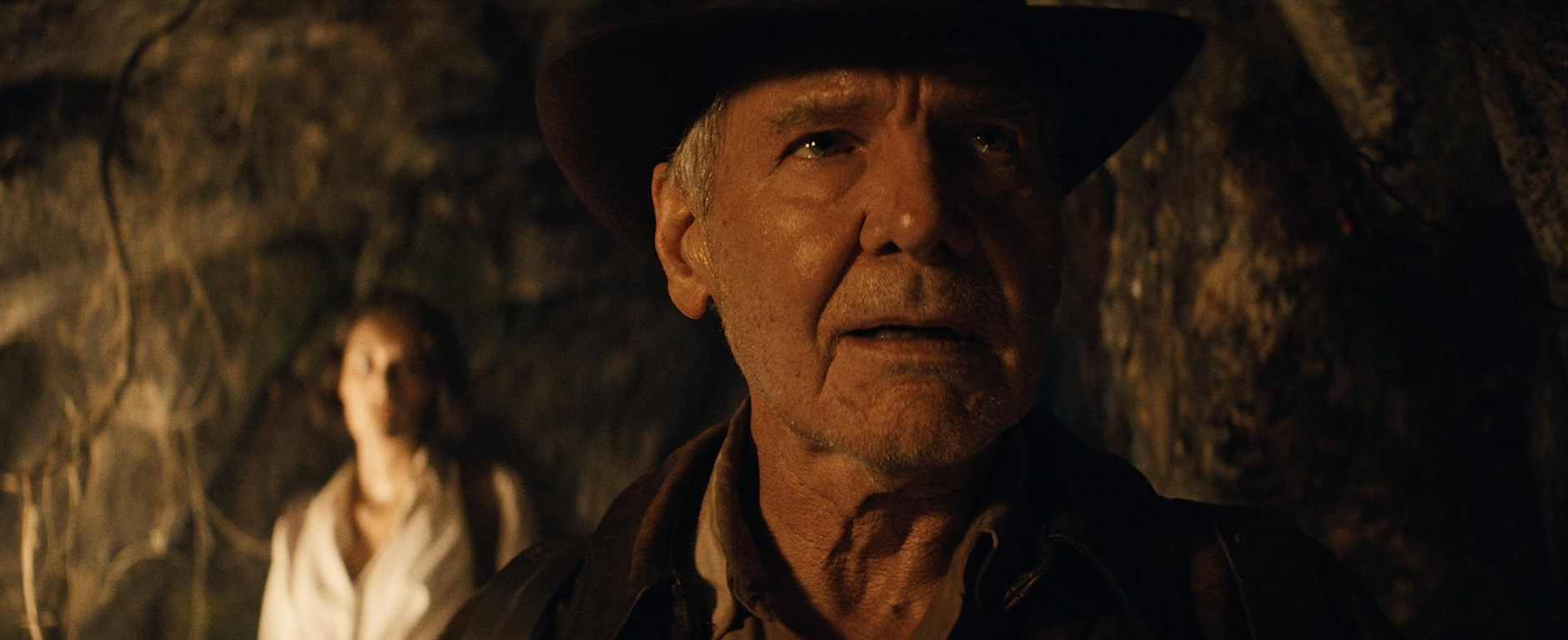
Film Review: Indiana Jones and the Dial of Destiny
Film Reviews
Indiana Jones and the Dial of Destiny
Director: James Mangold
Lucasfilm
in Theaters: 06.30
My lifelong obsession with movies began in 1981 when I saw Raiders of the Lost Ark at age seven, and the titular adventurous archaeologist has defined my moviegoing experience since. Indiana Jones and the Dial of Destiny is as much a personal marking of time and age as it is for Harrison Ford and Indy himself.
Dial of Destiny begins in 1944 with Indy (Harrison Ford) and a fellow archeologist, Basil Shaw (Toby Jones), in Eastern Europe attempting to recover artifacts the Nazis stole and facing off against a high-ranking officer named Jürgen Voller (Mads Mikkelsen). Voller is seeking the Antikythera, an ancient Greek dial built by Archimedes himself, and both Voller and Basil believe it has the power to control time.
Speaking of time, we then jump forward to 1969 and Indy living alone in New York, a relic of the past himself nearing retirement from his academic career. When Basil’s daughter, Helena (Phoebe Waller-Bridge), shows up asking questions about the Antikythera, Indy finds himself pulled into a race to beat Voller—now a NASA scientist working on the Apollo program—to finding the dial and setting in motion a plot to change the course of history.
The big question is whether Dial of Destiny is better than the series’ last entry, 2008’s Indiana Jones and the Kingdom of the Crystal Skull. That’s hard to say. I’ve never sided with the fiercest detractors of Crystal Skull, and as a chapter in Indy’s life story, the two stories are as different as Temple of Doom and Last Crusade. Dial of Destiny makes for a stronger finale, delving much further into the ways in which age and the changing world have affected the character. While Indy isn’t doing as many stunts this time around, the story gives Ford more meat to chew on as an actor, including a dramatic monologue that doesn’t “Shia” away from addressing important and controversial aspects of Crystal Skull.
The biggest misfire here is in the frustratingly phony de-aging effects used in the opening sequence: When Indy fights Nazis on top of a train, his rubbery face left me waiting to see Tom Hanks as the conductor asking him for his ticket and singing about hot chocolate. While the change in directors, with Mangold (Walk the Line, Logan) stepping in for Steven Spielberg, isn’t as jarring as it could have been, Mangold lets the pacing drag a bit. Still, the director captures the spirit of epic adventure, stages memorable action and brings back the globetrotting feel that Crystal Skull lacked.
The cast is strong, with the Waller-Bridge and Ford dynamic proving to be an irresistible pairing on par with Ford and Sean Connery. Helena is a terrific character, and It hope that she gets her own spinoff. Mikkselson is an effective villain. It’s particularly satisfying to see Indy fighting Nazis again at a time when America isn’t even bothering to ship them in from abroad when they can be grown right at home. While John Williams’ score is even more of a cut and paste of previous works than his recent Star Wars soundtracks, it still elicits excitement merely by evoking the old themes.
Indiana Jones and the Dial of Destiny isn’t perfect. It’s plenty of fun, and it hits more often than it misses. As one of the most stalwart fans of the series, I found it to be a satisfying epilogue. The Dial of Destiny succeeded well enough at transporting me back in time to make it a worthwhile journey, one I’ll be embarking on more than once. –Patrick Gibbs
Read more of the latest in film reviews:
Film Review: Asteroid City
Film Review: Elemental